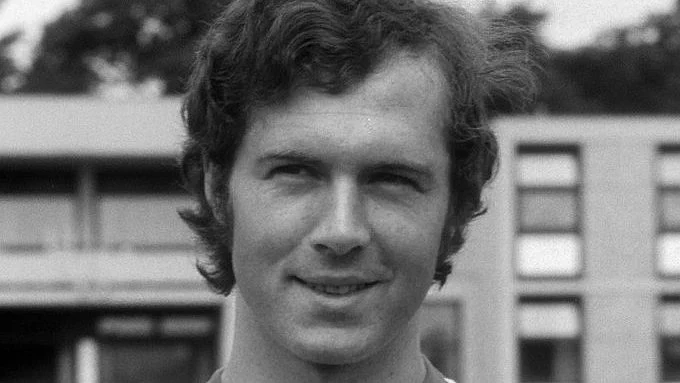Der Kaiser: A quiet end for football’s biggest multi-tasker ever
Franz Beckenbauer was the original libero, won the World Cup as a player and a manager and became a key figure behind the evolution of Bayern Munich

The last time Franz Beckenbauer’s name was hauled into the spotlight, it was not exactly a pleasant experience for the man football world knew as Der Kaiser.
It was a fallout of the investigations then launched into FIFA in the aftermath of Sepp Blatter’s tenure, largely over an unaccounted sum of Euro 6.7 million from Germany's successful bid for the 2006 World Cup. The charges framed against the legendary 'Emperor' included false declaration and money-laundering.
During the investigation, Swiss federal investigators raided his house in Salzburg, Austria in search of evidence, even as Beckenbauer protested his innocence. The trial ended without a verdict in April 2020, by which time he had started to withdraw from public life due to failing health.
It was perhaps the only instance where Beckenbauer had to pay a price for being a public figure, as one of the larger-than-life administrators entrusted with the campaign of getting the World Cup back to Germany.
The rest of his journey as a sportsman had been that of an iconoclast—arguably the most complete footballer in the history of the game, who popularised the role of the libero in the heart of defence, Beckenbauer was also one of the elite trio to have won the World Cup as a player and then again as manager.
He also enjoyed the sobriquet of 'Mr Bayern Munich', having established the brand as the force to reckon with not only in German football but on the global field.
The end came in his sleep apparently—on Sunday, 7 January—even as information was trickling in from his family that he was suffering from Parkinson’s Disease and a few other age-related ailments.
However, since he had consciously started to remove himself from public gaze for quite some time, there are no visuals of a frail or helpless Beckenbauer from these, his last days—quite in contrast to Pele, who was seen wheelchair-bound in his later years.
Our enduring collective memory of Beckenbauer then remains of a football aristocrat rooted in technical acumen, jacket casually unbuttoned as he watched Germany pip Argentina 1–0 — thanks to the Andreas Brehme penalty in the 1990 final — and avenge its defeat in the previous edition courtesy the Maradona magic.
It’s to my sorrow that Beckenbauer's exploits in the German shirt came before my time, but the niche role he had created for himself on the pitch reflected a tactical nous far ahead of his time.
For even a casual student of football history, it is easy to recall the elite trio who won football’s biggest prize—a World Cup both as a player. Curiously, Brazil’s Mario Zagallo passed away only a day before Beckenbauer, and the third was Didier Deschamps of France.
The diminutive Zagallo was sometimes known as 'The Professor', sometimes as 'the Old Wolf', but these monikers did not quite soar to the authority and awe embodied by 'Der Kaiser'.
Zagallo’s World Cup record has an extra edge, however—he won not one but two tournaments as a player (1958 and 1962), then one as the manager of an unforgettable 1970 Brazil and one as assistant manager again in 1994!
Deschamps, meanwhile, the workmanlike defensive midfielder who led his team to the 1998 World Cup and then helped win it as manager in 2018, has forged a long romance with Les Bleus and could well have emulated Zagallo in the Qatar 2022 final.
Beckenbauer, however, was not far behind—he finished as runner-up: a player in 1966, a manager in 1986 and then as captain in 1974, coach in 1990.
He would then go on and branch out into sports diplomacy, to deliver the 2006 World Cup to Germany as head of the bidding team that ensured his country was chosen over rivals England.
Nonetheless, while the World Cup may have given Beckenbauer most of his global prominence, it was his long association with Bayern Munich that turned him into an icon—a figure synonymous with that club’s remarkable success, despite growing up a fan of 1860 Munich. They were the more successful club in Bavaria at the time and the Bayern side Beckenbauer joined in 1964 were in a lower division.
Der Kaiser helped the club secure a promotion the next year into the newly formed Bundesliga, and from that point onwards, Beckenbauer and Bayern went from strength to strength. He eventually took over as one of their most successful managers and then continued as a long-serving president of the club.
The sport of football has seen many global greats of course: a Pele, a Maradona, a Zidane, a Messi, a Ronaldo – all world champions and fan favourites, each with a distinctive style of their own. But in Beckenbauer, we had the complete package of a visionary footballer, successful manager and administrator.
They don’t make men like the Kaiser any more!
Follow us on: Facebook, Twitter, Google News, Instagram
Join our official telegram channel (@nationalherald) and stay updated with the latest headlines
